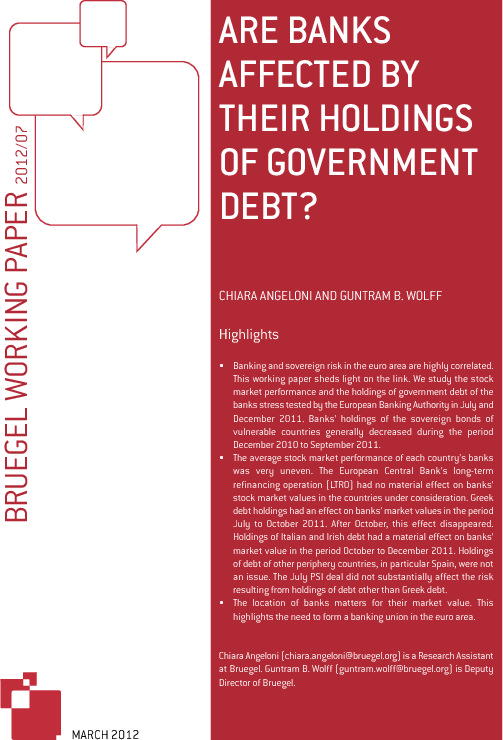Working Paper
Are banks affected by their holdings of government debt?
This Working Paper sheds light on the link between sovereign and banking risk in the euro zone. It provides an empirical analysis of the impact of government debt holdings on the stock market performances of the European banks stress tested in the EBA’s July and December 2011 exercises.
The strong relation between sovereign and banking stress is frequently emphasised, especially since the start of the European sovereign debt crisis. This working paper sheds light on the determinants of the link. It studies the stock market performance and the holdings of government debt of the banks stress tested by the European Banking Authority in July and December 2011. A number of results stand out:
- Banks’ holdings of the sovereign bonds of vulnerable countries generally decreased during the period December 2010 to September 2011.
- The average stock market performance of each country’s banks was very uneven during 2011. The long-term refinancing operation (LTRO) had no material effect on banks’ stock market values.
- Greek debt holdings had an effect on banks’ market values in the period July to October 2011 while after October this effect disappeared. Holdings of Italian and Irish debt had a material effect on banks’ market value in the period October to December 2011. Holdings of debt of other periphery countries, in particular Spain, were not an issue. The July PSI deal did not substantially affect the risk resulting from holdings of debt other than Greek debt.
- The location of banks matters for their market value. This highlights the need to form a banking union in the euroarea.









